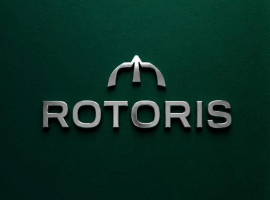“I’d Shut It Down”, Shark Aman Jokes While Rejecting ZebraLearn on Shark Tank India
Three points you will get to know in this article:
- ZebraLearn presents complex finance concepts in a visual, easy-to-understand format.
- The sharks questioned the low repeat purchase rate and high book prices.
- Ritesh Agarwal invested ₹1 crore for 1.6% equity, reducing the company’s valuation by half.
About ZebraLearn

Books on finance, investing, and business strategy often overwhelm readers with dense text and technical jargon. That’s exactly what ZebraLearn, founded by Surat based siblings Anurag and Radhika, set out to change.
Instead of long-winded explanations, ZebraLearn books rely on:
- Visual storytelling using charts, diagrams, and infographics.
- Simplified breakdowns of complex financial topics.
- Engaging layouts that encourage learning without intimidation.
Since launching in August 2020, ZebraLearn has reached over 1.25 lakh readers. What started as a business course transformed into a book series, covering subjects like:
- Stock investing and trading strategies.
- Real estate and HR fundamentals.
- Financial modelling and statement analysis.
While the concept was strong, the Shark Tank India pitch exposed critical business vulnerabilities—especially high pricing and low repeat sales.
Click here to visit their website: ZebraLearn
ZebraLearn’s Financial Highlighs
ZebraLearn’s growth has been rapid, with sales soaring from ₹10 lakh in FY21-22 to ₹10.7 crore in FY23-24.
ZebraLearn’s Revenue Growth
- FY21-22: ₹10 lakh
- FY22-23: ₹3.05 crore
- FY23-24: ₹10.7 crore
- FY21-22
- FY22-23
- FY23-24:
ZebraLearn’s Monthly Sales in FY24-25
- April 2024: ₹79 lakh
- May 2024: ₹90 lakh
- June 2024: ₹1.1 crore
- July 2024: ₹1.3 crore
- August 2024: ₹1.64 crore
- September 2024: ₹1.75 crore
ZebraLearn’s Sales Channels
- Amazon: 50%
- Own Website: 45%
- Flipkart: 5%
While Amazon dominates sales, nearly half of ZebraLearn’s revenue comes from its own website, allowing better control over margins and customer relationships.
ZebraLearn’s Best-Selling Book Categories
- Marketing, Real Estate & HR: 35%
- Stock Investing Mastermind: 15%
- 51 Trading Strategies: 15%
- Financial Statement Analysis: 10%
- Financial Modelling: 10%
- Other Finance Books: 15%
But despite these numbers, a major problem became clear during their Shark Tank India pitch, a repeat customer rate of just 10%.
ZebraLearn on Shark Tank India
The founders walked into Shark Tank India with confidence, seeking ₹1 crore for 0.8% equity, valuing their company at ₹125 crore.
But as soon as the sharks dug deeper, questions started piling up. Sharks were concerned about the price, repeat customers, and scalability.
Shark Kunal Bahl
Shark Kunal loved the concept initially, but once he saw the data, he had concerns. Only four finance books were driving most of their sales and a repeat customer rate of just 10% raised red flags. Kunal theorized that many customers bought the books expecting instant financial success. If they didn’t achieve results, they never came back. “Either the advice didn’t work, or they never read the books.” Finding this business model too risky, he backed out.
Shark Aman Gupta
Aman made it very clear that he doesn’t read books. “I would just spend all my time trying to get you to shut down your books business.”
Joking aside, he saw no personal connection to the industry and declined to invest.
Shark Namita Thapar
Namita was shocked at the pricing, ZebraLearn books are priced at ₹1,500–₹3,000 and Namita’s own book is sold at ₹300.
She told the founders, “Profitable companies usually excite us on Shark Tank, but you have major risks. Your books are too expensive, your sales rely on just a few products, and your business model is fragile.” Believing the company was at a vulnerable stage, she opted out.
Shark Anupam Mittal
Anupam saw potential, but the valuation was too high. “Your business is at a precarious stage. I can’t invest unless I take at least 5% equity.” Since the founders weren’t willing to lower their valuation, he walked away.
Shark Ritesh Agarwal
While every other shark backed out, Ritesh Agarwal saw value in the business.
He praised the founders for making finance more accessible and strongly believed in financial education. He offered, ₹1 crore for 1.6% equity. This effectively halved ZebraLearn’s valuation, the founders accepted the deal.
Why Ritesh Invested When Others Didn’t
Despite concerns, Ritesh saw opportunities in:
- Growing Market Demand: Finance education is booming, especially among young investors.
- Brand Authority: The books were already selling well, proving demand exists.
- Scalability Potential: While repeat orders were low, expanding into new book categories could fix this.
For Ritesh, it wasn’t just an investment—it was a bet on the future of financial literacy.
What’s Next for ZebraLearn?
With Ritesh on board, ZebraLearn needs to fix key problems:
1. Improve Customer Retention
- Introduce cheaper entry-level books to attract repeat buyers.
- Offer subscription models or bundled learning packs.
2. Expand Beyond Finance
- Explore tech, entrepreneurship, and self-development books.
- Introduce interactive learning options like courses or audiobooks.
3. Optimize Pricing and Accessibility
- Lower price points to increase affordability.
- Partner with corporates, universities, and online education platforms.
Lessons from ZebraLearn’s Shark Tank India Experience
Entrepreneurs can learn key takeaways from this pitch:
- A High Valuation Must Be Justified: Asking for ₹1 crore at a ₹125 crore valuation was ambitious.
- Repeat Customers Matter: A 10% return rate signaled a weak long-term business model.
- Pricing Can Be a Dealbreaker: Expensive books limited accessibility and scalability.
ZebraLearn’s Shark Tank India pitch was filled with tough questions, unexpected humor, and a surprising investment. Despite concerns, Ritesh Agarwal took a chance, believing that financial education is an industry worth betting on.
- Ed-Tech Giant PhysicsWallah’s IPO Opens on November 11 and has a ₹103–109 Price Range - November 6, 2025
- Bhavish Aggarwal: The Visionary Behind Ola Electric - August 31, 2025
- OLA: History of A Startup Giant - August 30, 2025




